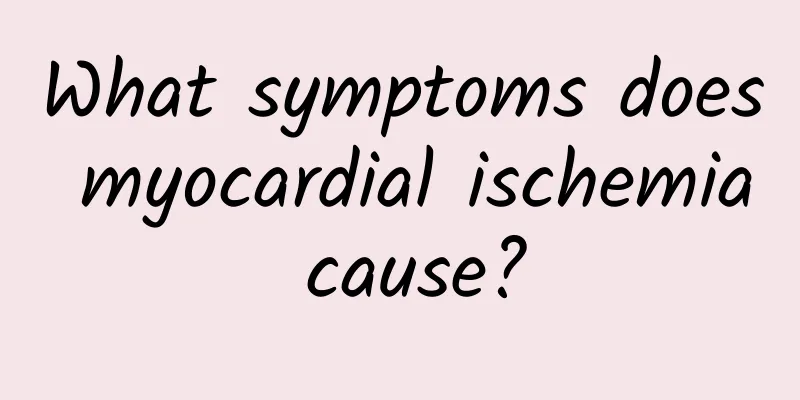What symptoms does myocardial ischemia cause?

|
Myocardial ischemia is a very common disease in medicine, and it exists in almost any age group, so people should not be careless. It is very likely that they suffer from myocardial ischemia. We should also understand some methods to prevent myocardial ischemia and protect ourselves. So what symptoms will myocardial ischemia cause? Today I will tell you what symptoms myocardial ischemia can cause. 1. When tired or mentally stressed, there will be dull pain behind the sternum or in front of the heart, or tightening pain, which radiates to the left shoulder and left upper arm, lasting for 3 to 5 minutes, and will be relieved by itself after rest, accompanied by profuse sweating. 2. Chest tightness, palpitations, and shortness of breath occur during physical activity and are relieved on their own during rest. 3. Exercise-related sore throat, burning sensation, tightness, toothache, etc. 4. Chest pain and tightness occur after a full meal, cold weather, or drinking. 5. When the pillow is low when sleeping at night, you will feel chest tightness and shortness of breath, and you need to lie in a high pillow to feel comfortable; when you are sleeping soundly or lying flat during the day, you will suddenly have chest pain, palpitations, and difficulty breathing, and you need to sit up or stand up immediately to relieve the pain. 6. Feeling anxious, chest tightness, shortness of breath, or chest pain during sexual intercourse or straining to have a bowel movement. 7. Sudden bradycardia, low blood pressure or syncope. [Other symptoms] Patients without typical symptoms may only feel stomach discomfort, nausea, or toothache, cervical pain, etc. [Diagnosis basis] 1. When tired or mentally stressed, dull pain or tightening pain may occur behind the sternum or in front of the heart, and radiate to the left shoulder and left upper arm, lasting for 3-5 minutes. The pain may be relieved after rest, and may be accompanied by profuse sweating. 2. Those who experience chest tightness, palpitations, and shortness of breath during physical activities, which are relieved by themselves during rest. 3. The type of ECG changes caused by myocardial ischemia depends on the severity, duration and site of ischemia. In a typical myocardial ischemia attack, the leads facing the ischemic area often show ischemic ST segment depression and/or T wave inversion. 4. Coronary angiography It can directly observe the blockage of the main coronary artery and its small branches, and is the most valuable detection method for showing coronary atherosclerotic lesions. |
<<: Primary dilated cardiomyopathy
>>: What can be ruled out if myocardial enzymes are normal
Recommend
Dull pain in the lower abdomen and urethra
If you feel a dull pain in your lower abdomen con...
Green beans for treating flat warts
With the rapid economic development, people are p...
Neurological hearing and visual impairment
Psychiatric hearing and visual impairment refers ...
Weakness in the limbs and general weakness
Everyone may experience weakness in their limbs a...
What is the cause of indirect strabismus?
Strabismus is a very common phenomenon in our liv...
How long can you live with cor pulmonale?
Cor pulmonale is a very serious disease after it ...
The difference between implantation pain and dysmenorrhea
For women, dysmenorrhea is relatively normal and ...
Are hemorrhoids contagious?
Is hemorrhoids contagious? Many friends are afrai...
What are the Chinese herbal medicines for lowering blood pressure and blood lipids?
The harm of high blood pressure and high blood li...
What to do if the pores on your arms are clogged
It is also common to have clogged hair follicles ...
Causes of death in children with Down syndrome
I believe that many people who are not mothers ha...
Can I eat black beans while taking Chinese medicine?
Although black beans are a very common food, ever...
Sleeping posture after face-lift injection
You must strengthen care after getting a face-sli...
How to treat dental fluorosis
Dental fluorosis is actually a problem that affec...
Causes of water breaking
The body of a pregnant woman is very precious dur...









